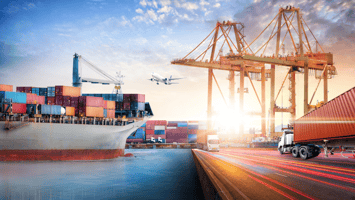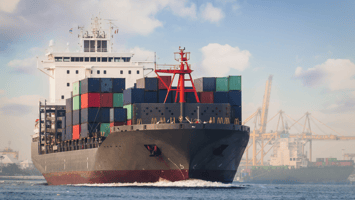With 2 Million+ Customs Transactions Each Year, Portway Helps Businesses Move Goods Through...
Navigating the Post-Brexit Landscape: Outsourcing Labour in the EU and England
In the wake of Brexit, Canadian businesses engaging in trade with England and the European Union have encountered new challenges and complexities in securing offshore labour. Two years into this paradigm shift, companies in Canada are still grappling with the evolving business landscape and its impact on their organizations. For companies that have been outsourcing certain business functions to European partners, it may be time to consider other options.
Brexit’s Impact on Labour for Canadian Business
Brexit has introduced several challenges for Canadian businesses, particularly concerning labour, as they navigate the new realities of trade and economic relations with the United Kingdom and the European Union. Some of the key challenges include:
- Workforce Mobility Restrictions: Before Brexit, the free movement of people within the EU allowed for a relatively easy flow of labour across borders. After the UK’s departure from the EU, new immigration policies were implemented, and these may limit the ability of Canadian businesses to easily access and deploy skilled labour across Europe and the UK.
- Visa Requirements and Compliance: The introduction of new visa requirements and compliance measures for Canadian workers travelling to the UK or EU member countries can be a logistical and administrative burden. Navigating the intricacies of different visa processes and ensuring compliance with multiple regulatory frameworks can be time-consuming and could impact the agility of Canadian businesses in managing their workforce.
- Increased Administrative Burden: Post-Brexit, Canadian businesses engaging in cross-border activities with the UK and EU now face increased administrative responsibilities. This includes the need to understand and comply with diverse labour laws, taxation systems, and social security regulations in both regions, adding complexity to human resource management.
- Impact on Recruitment and Talent Acquisition: The changes in labour mobility may influence the ability of Canadian businesses to recruit and retain skilled professionals from the UK and the EU. The added complexity and uncertainty surrounding work visas and residence permits make it more challenging to attract top talent from these regions.
- Supply Chain Disruptions and Labor Shortages: Disruptions in the supply chain, resulting from changes in trade dynamics, can lead to labour shortages for Canadian businesses reliant on goods and services from the UK and EU. Industries heavily dependent on just-in-time production models may need help securing skilled labour as a consequence of these disruptions.
- Increased Labor Costs: Shifts in exchange rates, trade tariffs, and other economic implications of Brexit may increase labour costs for Canadian businesses operating in the UK and EU. Fluctuations in currency values and additional trade-related expenses may impact the overall cost of doing business and may require a reassessment of budgetary considerations.
- Legal and Regulatory Compliance: Ensuring compliance with so many different labour laws and regulations across the UK and EU can be a complex task. Canadian businesses need to stay informed about changes in employment legislation, worker rights, and other labour-related regulations to avoid legal issues and maintain a positive working environment for their employees.
In light of these challenges, Canadian businesses are encouraged to stay informed about evolving labour and employment conditions in the post-Brexit landscape. Developing a comprehensive understanding of the regulatory environment and seeking legal and professional advice can help mitigate risks and position businesses for success in the changing global labour market.
For some outsourced business processes, companies may want to consider partners from other regions. If your customs brokerage, freight forwarding, or logistics organization needs a partner, please contact Portway International to learn how we can help.



